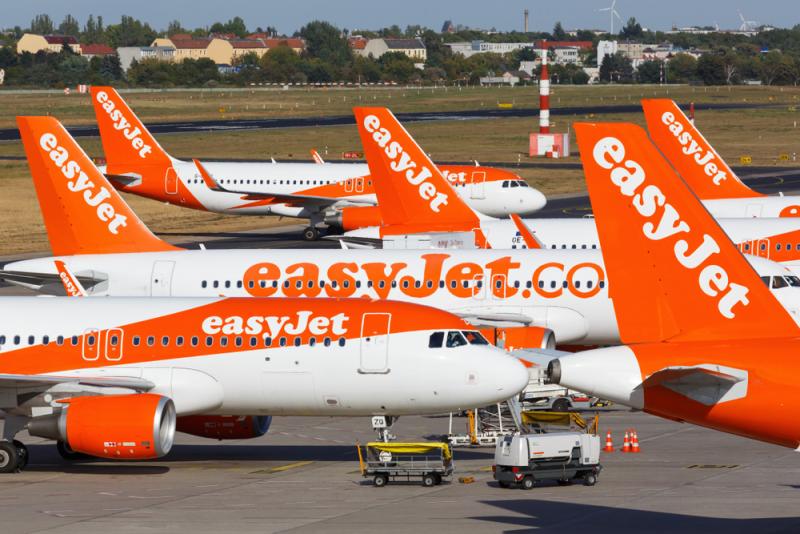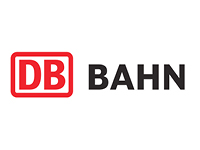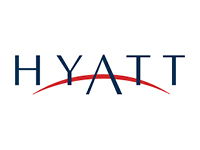
EasyJet Outlines Why A Shift To Net-Zero Emissions Will Make It More Competitive
EasyJet is convinced that its leadership on zero-emission aircraft technologies is compatible with its ability to remain a true budget airline.
CEO Johan Lundgren, speaking at an event at EasyJet’s London Luton headquarters Monday, said the move to net-zero emissions is important to keeping fares down rather than pushing them up as many fear. “The cost of carbon will be so expensive … if you don’t transition to zero emission technologies, I think that the taxes on carbon will only go one way,” he said. “I think it is completely in line with being an efficient low-cost airline that we are setting out to lead [in this field].”
Technologies that significantly reduce aviation emissions, like sustainable aviation fuels (SAF), are currently several times more expensive — or don’t exist in commercially viable forms — than their conventional, fossil fuel-based counterparts. Hence the drive by governments, with either incentives or mandates, to commercialize the technologies, and the rush by airlines and other industry players to invest in them.
EasyJet’s new roadmap sets out how it can achieve net-zero carbon emissions by 2050. The suite of measures features the introduction of zero-emission aircraft in the 150-seater size category from 2040, the renewal of its fleet with Airbus A320neos, operational efficiencies, airspace modernization, and the use of SAF.
The roadmap sees these measures reducing its carbon emissions per passenger kilometer 78 percent by 2050 compared to 2019. The balance will be addressed with carbon removal technology. EasyJet will phase out its carbon offset scheme by the end of 2023 because the Science Based Targets initiative (SBTi), which EasyJet is using to guide its roadmap, does not take into account out-of-sector carbon offsets, said Lundgren.
With its leading role on decarbonization, EasyJet is working with several partners on zero-emissions aircraft. This includes Airbus and Rolls-Royce on technologies aimed at a 150-seat aircraft segment, and with Cranfield Aerospace Solutions, GKN Aerospace, and Wright Electric on smaller types. While EasyJet does not plan to operate a plane with fewer than 150 seats or become involved in electric vertical takeoff and landing, or eVTOL, air taxis, the airline sees a responsibility to encourage development of the entire hydrogen and carbon-free technology ecosystem.
“Later this decade we are going to see turboprops flying around with hydrogen fuel cell aircraft,” David Morgan, interim chief operating officer at EasyJet told Airline Weekly. “They are paving the way for the hydrogen ecosystem … which we need as much as we need the aeroplane itself. If we want to get to zero carbon emissions flight for narrowbody aircraft, we must put all our efforts into building this ecosystem.”
EasyJet’s orders for 168 A320neos, which are 15 percent more fuel efficient than the A320ceos they replace, are the backbone of its short-term decarbonization plan. The aircraft will be delivered through 2029. In addition, next year EasyJet will retrofit its fleet with software systems that optimize the flight approach and descent profiles to deliver fuel savings; this will also deliver immediate emissions reductions.
EasyJet has also signed a deal with fuel supplier Q8Aviation to secure SAF to meet its entire requirements for the next five years, said Lundgren. This is EasyJet’s first major SAF offtake deal, and will enable it to meet the blending mandates being proposed by the UK and the EU, which may be up to 10 percent of aviation fuel by 2030. These are expected to be finalized in the coming year with both looking at a SAF blend mandate of 2 percent by 2025, while the UK is leaning towards a 10 percent requirement by 2030 and the EU favoring a 6 percent mandate.
Lundgren said he had written to the new UK Prime Minister Liz Truss and transport ministers to support aviation’s decarbonization drive, including policies that would modernize the UK airspace system. Airspace modernization in the UK and in Europe is crucial for the industry as “it has the biggest potential to achieve carbon reductions right now,” he said.
Lundgren also called on the UK government to develop regulations that reward and incentivize planemakers to produce zero-emissions aircraft, and airlines to adopt the technology. And he called for a link between passenger taxes and emissions to incentivize efficiency and the move towards zero-emission aircraft. The latter would include ring fencing a portion of tax revenues for decarbonizing aviation.
“We are laying the foundations of our very ambitious but very credible decarbonization journey,” said Morgan of EasyJet’s roadmap, which will continue to evolve as technologies develop and policies change. “We recognize it is ambitious, but we believe it is doable,” concluded Lundgren.
Share this article:



















